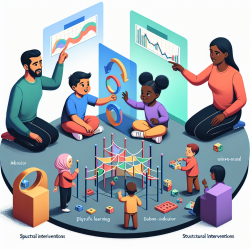Virtual teaching has presented unique challenges, especially for early childhood educators who prioritize play-based learning. A recent study, "Fostering Play Through Virtual Teaching: Challenges, Barriers, and Strategies," sheds light on these challenges and offers strategies for effective virtual play-based instruction.
According to the study, teachers faced two primary challenges:
- Access to Materials: Many children lacked access to the necessary materials at home, making it difficult to replicate classroom activities.
- Engagement: Keeping young children engaged in a virtual setting proved challenging, with issues such as background distractions and limited interaction.
Despite these barriers, teachers found innovative ways to incorporate play-based activities into their virtual classrooms. The study categorized these activities into five types of play:
- Functional Play: Activities like singing, fingerplays, and yoga.
- Constructive Play: Building with blocks or creating forts at home.
- Dramatic Play: Virtual tea parties, acting out stories, and pretend cooking.
- Games with Rules: Scavenger hunts, Bingo, and Simon Says.
- Guided Play: Outdoor investigations and science experiments.
These findings highlight that while virtual teaching is challenging, it is possible to create engaging, play-based learning experiences with creativity and adaptability. Teachers must be supported with adequate resources and training to effectively implement these strategies.
To read the original research paper, please follow this link: Fostering Play Through Virtual Teaching: Challenges, Barriers, and Strategies.










